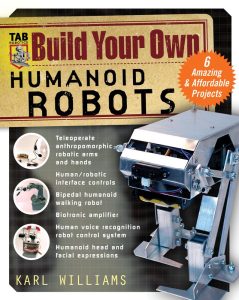The AI Revolution Navigating a New Era of Employment

Artificial Intelligence (AI) is shaking up the job market! With so much change, it’s hard to know what the future holds. Experts are discussing how these innovations will redefine work as we know it. In this overview, discover insights into AI’s impact and anticipate transformations in various professions.
The conversation around AI continues to grow. Jeffrey Hinton, a prominent figure in this field, has raised points on what lies ahead. As work dynamics evolve, some jobs might be at risk. But don’t panic! Learn how to adapt and thrive in this evolving landscape.
Jeffrey Hinton’s Journey
Jeffrey Hinton, often dubbed the “Godfather of AI,” has had an impressive career. Notably, he left his position at Google to discuss AI freely. His decision speaks volumes about his dedication to open dialogue on technology’s profound impacts.
The move surprised many, showing his commitment to shedding light on both AI’s potential and pitfalls. However, his actions emphasize the importance of transparent conversations about AI’s implications on society and the economy.
AI’s Potential to Disrupt Jobs
Hinton highlights AI’s ability to transform the job landscape. Historically, machines replaced human strength during the Industrial Revolution. Today, AI challenges human intelligence, aiming to make cognitive tasks more efficient.
Professionals in finance and software may feel AI’s impact first. Industries like healthcare, however, might see AI as an enhancement. It’s a mixed bag, with some jobs gaining efficiencies and others requiring fewer human workers.
AI’s rapid advancements push boundaries daily. But it’s not all doom and gloom! There’s hope for complementary roles where humans and AI collaborate, especially in sectors demanding interpersonal skills.
Cognitive and Non-Cognitive Tasks
AI excels in cognitive tasks, potentially affecting jobs demanding high mental engagement. This shift creates new dynamics in employment.
Industries may focus on tasks blending AI with human skills, boosting efficiency. However, roles simply overseen by AI might face reduction.
Interestingly, AI’s expansion may redefine roles, especially those blending creativity and human judgment. Meanwhile, jobs heavily reliant on AI could undergo significant changes.
Elastic and Inelastic Job Markets
Understanding the elasticity of job markets is crucial. Some roles will adapt with AI, while others won’t survive its efficiency.
Healthcare might thrive with AI, enhancing patient care without reducing workforce. Conversely, jobs like customer service may shrink as AI handles numerous interactions effectively.
Elastic job markets adjust to AI’s presence, while inelastic ones may witness downsizing. Thriving means embracing changes and adapting to new dynamics!
Anticipating the AI Revolution
As AI evolves, everyone’s work environment will adjust. Embrace AI as a helpful tool, focusing on growth rather than fear.
Some jobs are more sensitive to AI advancements, such as customer service roles. AI’s impact varies, so staying informed is key!
The Human Element in AI Integration
Human skills remain invaluable in various professions. AI may enhance efficiency, but the human touch is irreplaceable.
Combining AI with human empathy and creativity yields promising results, especially in healthcare and creative industries.
AI shows promise, yet human qualities like empathy, creativity, and collaboration remain crucial. Harnessing AI’s full potential requires balancing technology with human strengths.
The Economic Shift
AI reshapes economic landscapes with innovations creating fresh opportunities. Industries must adapt, embracing change to thrive.
As AI disrupts conventional roles, the economic power balance shifts. Developing policies ensuring fair distribution of AI-generated wealth is essential.
Adapting to AI-driven changes necessitates rethinking old business models. The potential rewards for those ready to innovate and embrace new possibilities are immense.
Preparing for the Future
Adaptability and continuous learning are vital as AI redefines industries. Cultivating skills like empathy, critical thinking, and collaboration remains important.
Balancing technology with human values is key to navigating AI’s transformative journey. Preparing requires openness to new learning pathways and improvements.
Navigating AI’s Ethical Landscape
Ethical considerations surface as AI advances, requiring careful scrutiny. Aligning AI innovations with societal values ensures beneficial integration.
Addressing AI’s ethical challenges demands collaboration between tech developers and policymakers. Ensuring ethical usage safeguards societal interests.
AI’s impact on work is undeniable. Embracing change and adapting to new roles is the way forward. Together, humans and AI can shape a prosperous future.







